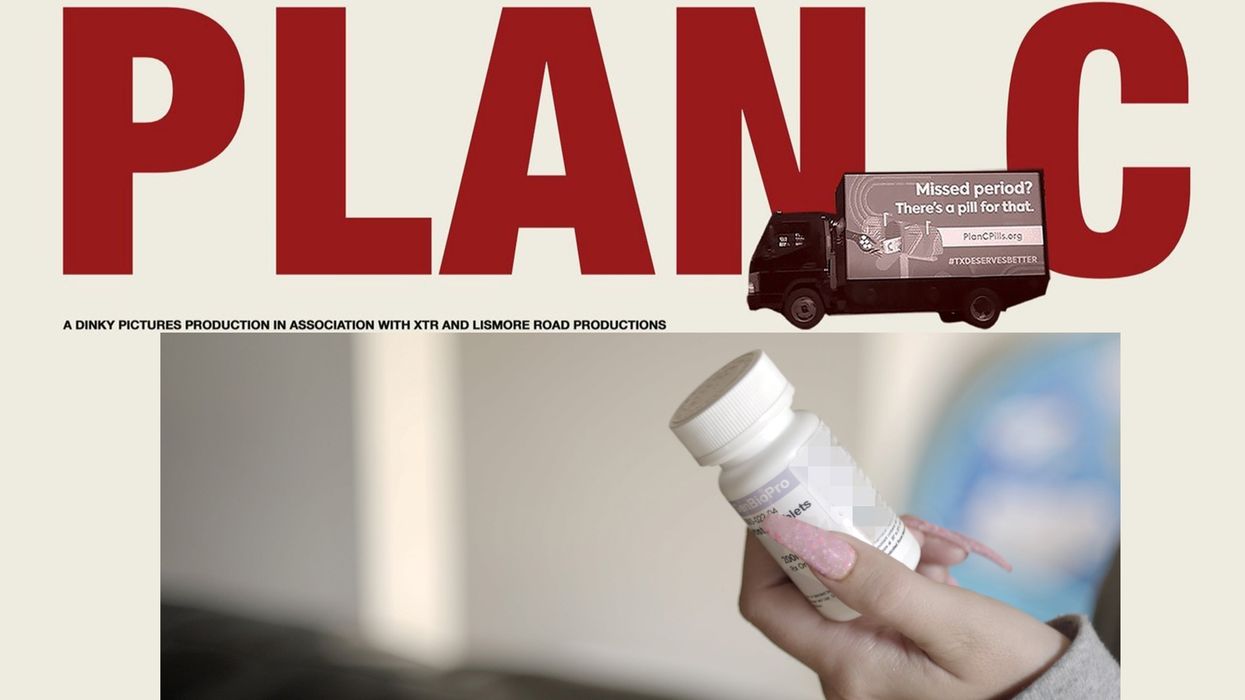Tips On Editing Docs With Difficult Subject Matter
Editor Meredith Perry had about 300 hours of footage from the fall of Roe v. Wade. Here are some tips she shared with us to better manage the difficult subject matter.

'Plan C'
PLAN C is a documentary about activist Francine Coeytaux and her mission to provide access to abortion medication via her non-profit organization, Plan C.
Directed by filmmaker Tracy Droz Trago, the film contained hundreds of hours of footage, often containing difficult subject matter.
Yet from her workstation on her home in Washington State, editor Meredith Perry completed the project at breakneck speeds. We sat down with her for the NFS Podcast to hear about her workflow and journey with the film.
Here are some things we learned that could help you on your next project.
Plan C | Official Trailer 🔥2023 🔥DocumentaryA secret grassroots organization persistently fights to expand access to abortion pills across the USA keeping hope alive during a ...
Building The Edit
Trago and Perry worked on the film for only a short period of time. At least relative to other documentary films.
"In total, it was about a year and a half, and we were shooting up until almost right before we locked, which was very intense," Perry explained. She even made a customer shortcut to better organize her B Roll footage within Premiere Pro.
"I basically made a keyboard shortcut for turning something blue," Perry said. "It was so much footage, and I needed to be able to find the B Roll really fast."
It also didn't even matter if Perry moved from one editing station to another. "I have a thumb drive on my car keys and I keep my shortcuts on it, so no matter where I am, I can just plug them in."
After everything was organized, selects needed to be pulled. "I would put everything into a timeline and cut out my selects. And then I move a select to the track above. And then if I’m really excited, I move it to the track above that.

Adobe Premiere Pro
Photo by Wahid Khene on UnsplashStaying (Mentally) Healthy
"[Plan C] was such an epic chronological undertaking, cause it was, you know, like, Roe was falling in real-time, and we knew it was coming, but we didn’t know exactly when,” Perry said.
“There was this urgency too. If we were submitting to Sundance or (to a festival) next year, it would have been kind of late in a way.”
Getting the project shot and organized in the timeline took effort and very long days. "There was some breakneck speed there towards the end." Perry quipped.

'Plan C'
"There’s days where you’re working 16-hour days for like a month or something, and you’re like, what am I doing with my life, like I’m so tired,” Perry explained.
Every film, especially a documentary, is a work of love. Finding an anchor to keep you grounded and sane throughout difficult moments is essential for every project.
And Perry found this in Francine, the founder of Plan C.
"I always would think of Francine getting a standing ovation. I would, like, picture it in my head and be like, 'This is what we’re doing.' We want Francine to get recognition. We want her life’s work to be more widespread. That’s what this film is trying to do." Perry said.

'Plan C'
Watching 300 hours of footage wasn't the issue for Perry and her team. It was what was in the footage. Countless drives arrived where people had to deal with the difficulties of not being able to get the necessary medical treatment.
There were moments where people had no will to move on.
“Editing is so much about empathy and letting things live inside of you," Perry said. "Finding those moments that you know people are going to respond to, that was something that I really started to think, ‘oh this is how we were going to make it work,’ so there it is, this terribly dark, bleak film because we have these moments with Francine.”

'Plan C'
But even with Francine as her rock and moment of clarity, getting this film done in time for it to be still relevant took a toll on Perry.
"It’s kind of like being a therapist. Only we don’t get the training that therapists get on how to deal with it," Perry said.
“If you’re going to be embarking on a year-long project about war or something like this where it’s going to affect all of the people with uteruses in the US in a negative way, I think it's really important to have a therapist,” Perry explained.
For her, any future projects with a difficult subject matter needed a therapist so she could get "tools on how to stay open to the content without being traumatized by it."
If you'd like to listen to the entire interview, check out the No Film School Podcast.
- Documentary Workflow: How a Walter Murch Spreadsheet Can Save You in Post ›
- Creating a Netflix-Style Documentary Is Easier Than You Think ›
- If You Want to Learn How to Tell a Story, Edit a Documentary ›
- 'Plan C' Editor Reveals the Skill Every Creative Should Foster | No Film School ›











